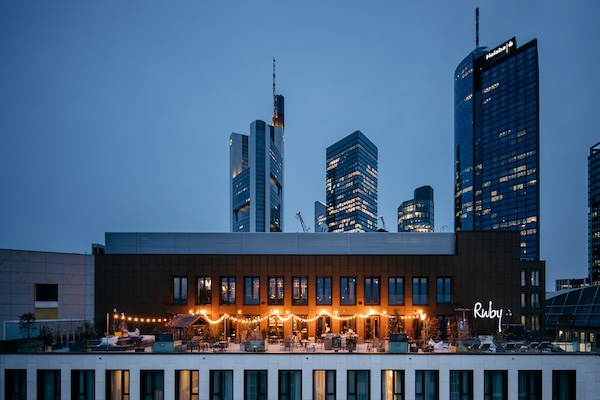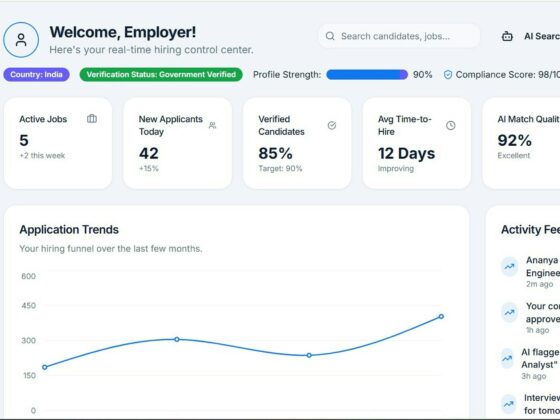
Dorothy’s ruby slippers in “The Wizard of Oz” signified many things. One was hope. IHG Hotels & Resorts hopes that a click of its heels will be the impetus for growing its newest brand acquisition.
On Tuesday, tucked into IHG’s full-year earnings report, the company announced it had acquired Ruby, billed as a “premium urban lifestyle brand for the modern traveler, with space-efficient designs and an attractive, flexible concept.”
IHG will pay an initial consideration of $116 million for its now 20th brand and its related IP, with a potential future payment of $190 million based on scale of rooms grown and operated by the seller.
Ruby was founded in 2013 by Michael Struck and currently has 20 operating hotels, nine of which are in Germany (Cologne, Dusseldorf, Frankfurt, Hamburg, Munich and Stuttgart), with the remainder in London (three), Vienna (two), Switzerland (two in Geneva and Zurich)) and one each in Italy, Ireland and the Netherlands. IHG expects as many as 10 more Ruby properties to open by the end of 2027. The pipeline hotels are across more European cities, including Edinburgh, Marseille, Rome and Stockholm.
Lodging companies continue to seek out growth through M&A, especially in the upper-midscale, select-service, urban micro market, which Ruby slots into. The brand has a similar description to and feel of Marriott International’s Moxy brand, which is known for its rather small rooms and activated public spaces. The design allows for it to fit into a smaller urban footprint, which is conducive to lower construction and design costs for developers and more keys to derive revenue from.
The brand touts itself as conversion-friendly, inclusive of adaptive re-use across a range of commercial property types, with office conversions having been performed in the past. Ruby also touts itself as having a “lean luxury” approach, terminology that is a nice alliterative flourish, but is can also be a kind of marketing gimmick. The approach, Ruby says, includes touches “ranging from a great bed and shower to unique cocktails in destination 24/7 bars, all coming together to connect guests with sought-after cities at the right price.”
The hotels have a stripped-down labor model with mechanisms like self-service check-in kiosks.
[embedded content]IHG will race to scale Ruby, which it notes has achieved a net-system-size compound annual growth rate of 26% over the last five years. Europe will be the initial region for development, but IHG said it expects to have the Ruby brand ready for development in the U.S. by the end of the year. IHG is targeting the Ruby brand to grow to more than 120 hotels over the next 10 years and accelerate to more than 250 over 20 years across owners globally.
“This acquisition demonstrates our focus on building our presence in large, attractive industry segments and using our experience of integrating and growing brands and hotel portfolios,” said Elie Maalouf, CEO of IHG Hotels & Resorts. “The urban micro space is a franchise-friendly model with attractive owner economics, and we see excellent opportunities to not only expand Ruby’s strong European base but also rapidly take this exciting brand to the Americas and across Asia, as we have successfully done with previous brand acquisitions.”
Ruby Founder Struck said it selected IHG “as the right partner to take the Ruby brand and our international expansion to the next level,” citing IHG’s distribution power “and its proven track record of successfully preserving identity and culture when integrating brands.” He also cited timing: “Our unique solutions for efficient adaptive re-use of office space are in high demand, positioning us for strong growth.”
Other Considerations of Note
- As part of the master franchise and development agreement with Ruby, initial franchise fees receivable by IHG from the current 20 open hotels and the current pipeline of 10 hotels are anticipated to be approximately $8 million in 2028, which would be the first full year when all 30 hotels would be in IHG’s system.
- Taking into consideration further development by the seller to open more hotels beyond the current pipeline, together with IHG’s plans to expand the Ruby brand with other hotel owners globally, franchise fees by 2030 are anticipated to be in excess of $15 million.
- The seller’s operating company is not being acquired by IHG and will continue to operate the current open hotels and any future hotels that the seller develops under the brand.
- Open, pipeline and all future Ruby hotels operated by the seller will enter into individual franchise agreements with IHG and pay to IHG brand royalty fees and system fund fees.
- To incentivize further growth in the brand by the seller, future payments are contingent on the number of Ruby-branded rooms operated by the seller at the end of the preceding year. A payment of around $9 million would be paid to the seller if they grew to operate in excess of 10,000 Ruby-branded rooms. This scales up to the maximum potential total if they grew to in excess of 20,000 rooms, a scale that is approximately six times bigger than the current open hotels.
- The integration of all 20 currently open Ruby hotels into IHG’s system is expected to commence later in 2025 and be completed by March 31, 2026. This would increase IHG’s global system size by approximately 0.3%.
- Integration operating costs for IHG of approximately $10 million are expected to be incurred in 2025.
IHG Results
Highlights of full-year performance included: operating profit up 10%; global RevPAR up 3% for the year, which accelerated as the year progressed with Q4 RevPAR up 4.6%; U.S. RevPAR up 4.1% in Q4 and EMEAA up 6.9%; net system growth of +4.3% year-over-year with 371 hotels opened; +23% more rooms than the previous year and a 34% increase in room signings to 714 hotels.
“We continue to strengthen our enterprise to position IHG as the first choice for guests and owners, further improving and growing our brands, driving loyalty contribution, rolling out new hotel technology and increasing our ancillary fee streams,” said Maalouf.







